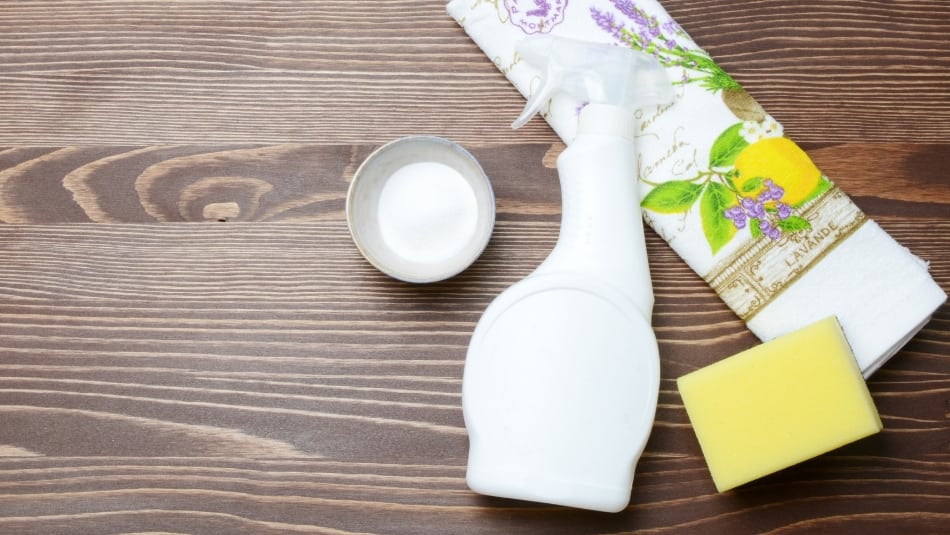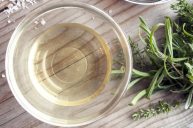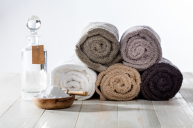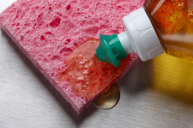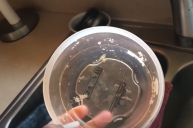White vinegar is one of those ingredients that can do no wrong. From being a delicious base to a salad dressing or sauce to a powerful all-natural cleaning agent, vinegar is a staple around the house. It works its magic to sanitize cutting boards and other dirty surfaces, it makes great window cleaner, and it is powerful enough to remove hard water stains in the coffeemaker. Did you also know you can pour some into the washing machine for an inexpensive and effective fabric softener? Side note: just make sure you don't combine vinegar with bleach. It creates a toxic chlorine gas, which can cause damage to lungs and eyes.
Videos by Wide Open Country
The list goes on and on about the benefits of white vinegar, but you do have to beware about using it with certain applications, especially when it comes to acting as a cleaning agent. You don't have to ditch vinegar altogether (it will always be a staple in my house!) just keep these things in mind next time you want to clean with vinegar.
1. Hardwood Floors
View this post on Instagram
Hardwood floors are beautiful-they add character, a little rustic charm, and they're pretty durable. But be careful. Depending on what type of finish is on your hardwood floors, using a mixture of white vinegar and warm water to clean can break down the finish over time due to vinegar's acidity. It can remove the protective coating making hardwood floors look dull rather than shiny and glossy.
Your best bet is to stick to cleaning products designed for wood just to be safe. You can also mix up some dish soap and warm water in a spray bottle for an easy and cheap cleaning solution.
2. Natural Stone Surfaces
View this post on Instagram
Countertops and floors made with common materials like granite or marble are surfaces you shouldn't clean with white vinegar. Like lemon juice and other citrus cleaners, vinegar is highly acidic and can etch the stone, which leaves markings that you won't be able to get rid of.
Warm water and a mild liquid dish soap mixture make a great cleaner for stone surfaces like granite and marble.
3. Egg Stains
View this post on Instagram
Not sure how you're supposed to get rid of that stubborn egg stain? Don't grab the white vinegar! Using vinegar on egg stains, whether it be on clothing or on the carpet, will actually cause the egg to coagulate making it even harder to remove. Your best option would be a simple solution of warm water and soap to avoid coagulation.
4. Waxed Furniture
View this post on Instagram
Just like certain finishes on hardwood floors, white vinegar can be too strong on waxed furniture like cabinets or tables. It can eat away at the finish, making it look dull instead of glossy. Opt for cleaning products specifically designed for these surfaces.
5. Your Smartphone, Tablet, or Computer Screen
View this post on Instagram
There's no doubt we all share some things in common, one of them being using at least of these devices each day. Once the screen gets blurry or you think it's a good time to sanitize (these devices are filled with germs!), make sure you do not reach for the vinegar. By wiping down with vinegar, you can remove the coating that makes these screens fingerprint resistant.
Your best bet is to wipe down with a microfiber cloth or wipes that are designed for device screens.
6. Your Iron
View this post on Instagram
Some say an easy iron-cleaning trick is to pour in distilled white vinegar, but that's actually wrong. Vinegar can damage your iron and make it work less effectively. Make sure to follow the manufacturer's instructions to be safe.
